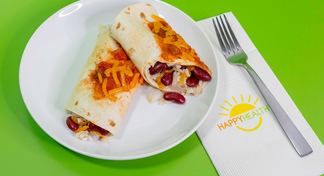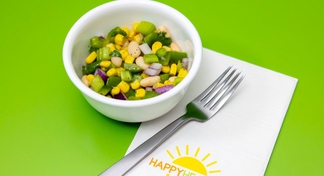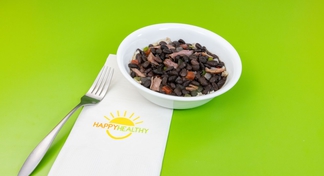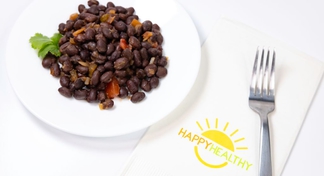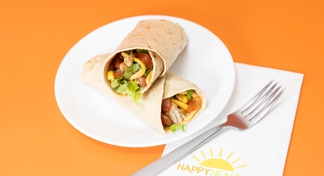Beans are grown and used all over the world.
Inspired by different cultures, there are many recipes to try. Beans are a staple food that deserve a place in any pantry!
Select
There are a few things to consider when selecting beans:
- Dry or canned?
When considering price, dried beans are usually cheaper than canned beans. Canned beans are ready to use while most dried beans require soaking before cooking.
- What variety?
Beans come in many varieties, such as black, red, pinto, kidney, navy, lentils, and black-eyed peas.
- How will they be used?
Some common uses for beans include:
- Hummus (traditionally made with chickpeas, but just about any type of bean can be used).
- Refried beans (traditionally made from pinto beans).
- Beans and rice (red beans are commonly used for this).
When selecting canned beans, look for cans that are free from dents and say “low sodium” or “no salt added.” Make sure to check the nutrition facts label.
Prepare
Rinsing is important with both canned and dried beans. After rinsing, dried beans must be soaked before cooking.
- Overnight Soak:
- Place beans in 3 cups of cold water per cup of beans.
- Soak for 8–24 hours before cooking.
- Drain liquid after soaking time is complete.
- Quick Soak:
- Place beans in 3 cups of cold water per cup of beans.
- Bring water to a boil. Boil for 2 minutes.
- Remove from heat. Cover and let stand for 1 hour.
- Drain.
- Cooking:
- Dried lentils and split peas do not need to be soaked.
- Rinse, then simmer for 20 minutes following package or recipe directions.
- Drain soaked beans. Rinse, then add 1 cup of fresh water per cup of beans. Simmer for 2 hours following package or recipe directions.
Children can get involved with cooking beans by:
- Helping rinse beans.
- Measuring water for soaking.
- Helping mash beans.
- Adding herbs and spices.
Black Beans and Rice Bowl
- 1 15-ounce can low-sodium black beans
- 1 tablespoon vegetable oil
- 1 12-ounce bag frozen onion and bell peppers mix
- 1 15-ounce can diced tomatoes, no salt added
- 1 teaspoon garlic powder
- ¼ cup lime juice
- 1 teaspoon Cajun seasoning (HappyHealthy)
- 1½ cups instant brown rice
- 1 cup water
- Wash your hands well with soap and warm water for at least 20 seconds.
- Drain and rinse beans.
- Heat large pot with lid over medium heat. Add oil.
- Sauté vegetable mix until tender, about 5–10 minutes. Stir occasionally to break apart.
- Add tomatoes, beans, garlic powder, lime juice, and Cajun seasoning. Stir to combine, and bring to a boil.
- Add rice to boiling mixture, and stir to combine.
- Add water, stir, and reduce heat to low. Cover and simmer for 30 minutes, or until rice is tender and most liquid is absorbed, stirring every 10 minutes.
- Remove from heat, and let stand for 5 minutes.
- Refrigerate leftovers within 2 hours.
White Chicken Chili
- 4 cups chicken, cooked and cooled
- 2 15.5-ounce cans great northern beans
- 16 ounces salsa verde
- 4 cups chicken stock
- 2 teaspoons ground cumin
- Wash your hands well with soap and warm water for at least 20 seconds.
- Shred cooked chicken, removing any skin and fat, and add to a large pot.
- Drain and rinse great northern beans and add to large pot.
- Add salsa verde, chicken stock, and ground cumin to the large pot and mix ingredients. Bring to a boil over medium-high heat, about 10 minutes. Reduce heat, cover, and simmer for 10–20 minutes.
- Refrigerate leftovers within 2 hours.
Learn More:
- To learn more about cooking beans, click on Tips and Videos.
Publication 3612 (POD-04-24)
By Daniel Hirst, Mississippi State University Extension Service.
This material was funded by USDA's Supplemental Nutrition Assistance Program - SNAP. This institution is an equal opportunity provider.
Department: Nutrition Education
The Mississippi State University Extension Service is working to ensure all web content is accessible to all users. If you need assistance accessing any of our content, please email the webteam or call 662-325-2262.







